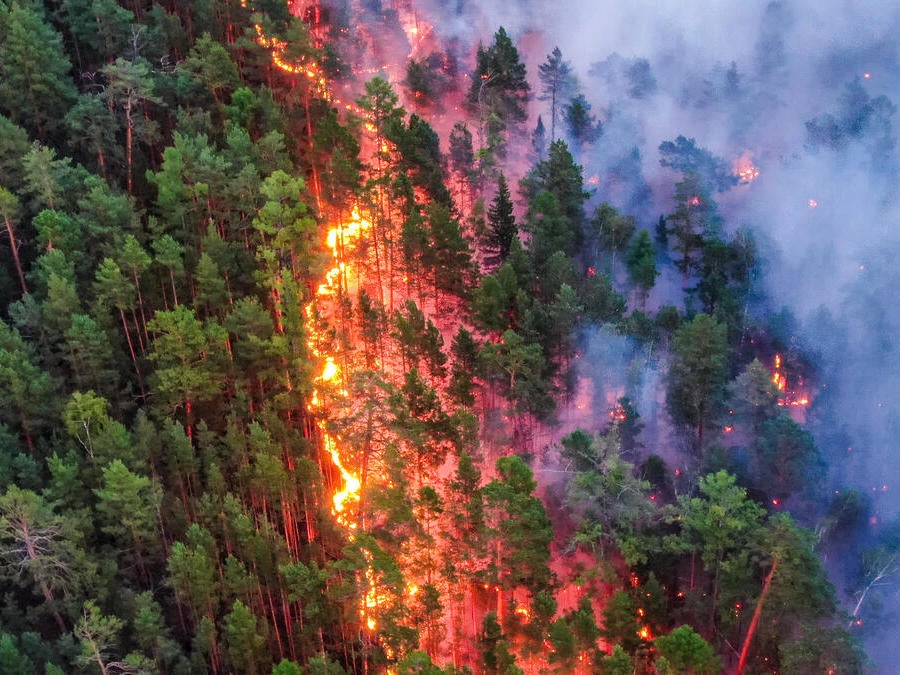This website uses cookies so that we can provide you with the best user experience possible. Cookie information is stored in your browser and performs functions such as recognising you when you return to our website and helping our team to understand which sections of the website you find most interesting and useful.

Out of control wildfires in Siberia have torn through an area larger than Greece so far in 2020, Greenpeace Russia has said, imploring authorities to do more to tackle the fires which are choking towns and cities in smoke and hastening the climate crisis.
Using satellite monitoring data, Greenpeace said the total area burnt by the fires in Russia since the beginning of 2020 has reached 19 million hectares, of which 10 million hectares were forest fires.
The majority of the blazes are in remote areas of far eastern Russia and eastern Siberia, but they are spreading.
Last week smoke from wildfires covered Siberian cities including Yakutsk, Ugorsk and Sovetsky as well as many other smaller towns and villages.
“Russia’s sprawling Siberia region has become a climate hotspot, heating up much faster than the rest of the planet,” said Grigory Kuksin, Wildfire Unit Head at Greenpeace Russia.
“This summer has already brought extreme heat waves, oil spills caused by thawing permafrost, and raging forest fires – what next before we finally act on climate?”
“Russian authorities must work fast to stop cities being filled with toxic smoke haze.”
He urged politicians to stop economic cuts on forest protection and to “support national forestry to protect our health and our climate.”
The severe impact on air quality has raised concern over exacerbating respiratory problems during the Coronavirus pandemic. There is strong evidence air pollution impacts the body’s ability to fight the disease, and worsens the symptoms of infected people.
According to Greenpeace Russia campaigners, while some of the forest fires were caused by lightning, others were started on the river banks, most likely as a consequence of campfires.
Another common cause of Siberian and far eastern wildfires are large scale burnings which can get out of control, and also due to legal requirements for logging companies to destroy logging leftovers.
“It’s another year that Russian authorities have failed to stop these fires risking local communities and contributing to climate change,” Greenpeace said.
On Monday, Russian officials said fires had destroyed 1.2 million hectares of forest in Russia, saying this figure “is a quarter less than a year ago”, independent news agency Interfax said, quoting deputy prime minister Victoria Abramchenko.
This figure is eight times less than Greenpeace’s estimate.
According to her, more than 9,000 forest fires have occurred in the country.
She said the fires started early this year, due to an abnormally warm winter with little snow and an early and dry spring.
She said: “Thanks to the well-coordinated work of federal and regional fire fighting services, there is no threat to the life of people and economic facilities, the forest fire forces manage to quickly eliminate the fires.”



 Africana55 Radio
Africana55 Radio 

